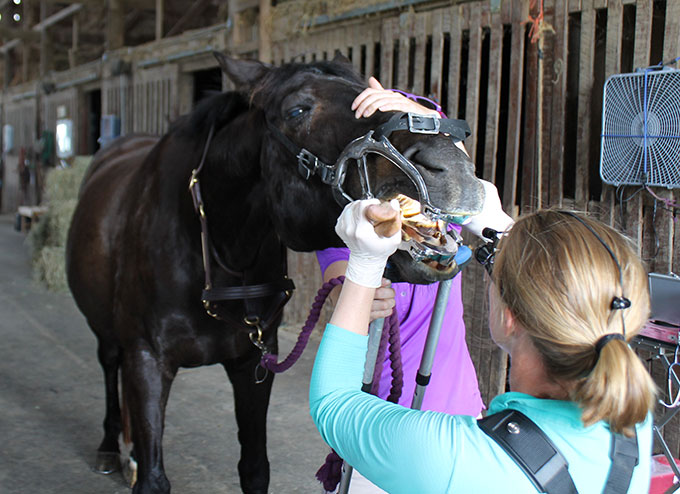
Case Study: Keeping the Older Show Horse Competitive
Read about how Mindful, a 21-year-old Hanoverian gelding, stayed competitive at the highest levels in The Horse‘s Older Horse 2025 issue.

Read about how Mindful, a 21-year-old Hanoverian gelding, stayed competitive at the highest levels in The Horse‘s Older Horse 2025 issue.

Evaluate how supplements can fit into a complete equine management program.

Tune into Ask TheHorse Live to learn how to prepare for equine health emergencies logistically and financially. Sponsored by CareCredit.

Read about how veterinarians incorporate therapies such as acupuncture and PEMF to help your horse feel his best.

Learn how veterinarians get to the bottom of this complex cause of poor performance.

What drives equine aggression—and how can training help? Find out in this article from The Horse’s Spring 2025 issue.

Dr. Katie Ellis and Dr. Howland Mansfield discuss what imaging modalities veterinarians might use to accurately diagnose joint disease in horses.

Horses with EMS are often overweight or obese and also at an increased risk of developing laminitis. Implement these 5 strategies to manage your EMS horse more effectively.

Owner-provided information and a thorough lameness examination can help veterinarians start meaningful investigations into front foot lamenesses.

Consider the benefits of including veterinarians in your horse’s preventive care this spring.

How to decide if your older mare is a good candidate for breeding and improve her chances of success.

Read about the steps veterinarians and farriers take to identify, evaluate, and treat riding horses’ hoof problems.

Learn more about this common and frustrating condition seen in horses in the Winter 2024 issue of The Horse.

Researchers in the U.K. say finances, emotion, and logistics all affect the outcome in cases of severe colic in horses.

Understand why adhering to your veterinarian’s carefully designed laminitis-care plan is critical to your horse’s welfare and well-being.

Your veterinarian needs a good look into your horse’s deep, dark mouth to perform a thorough dental exam. The answer? Proper sedation.
Stay on top of the most recent Horse Health news with
"*" indicates required fields